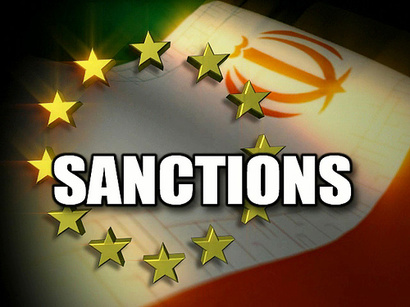U.S. sanctions Malaysian bank, Senate drafts new bill on penalties against Iran

By Sara Rajabova
The U.S. slapped on Thursday financial penalties on an Iranian businessman, a Malaysian bank and a network of companies it accused of attempting to evade international sanctions on Iran's nuclear program through money laundering.
The Treasury Department blacklisted businessman Babak Zanjani, Malaysia's First Islamic Investment Bank (FIIB) and Dubai-based Sorinet Commercial Trust Bankers along with Swiss-based Iranian oil trading company National Iranian Oil Company, Reuters reported.
According to the report, Zanjani and a network of companies had moved billions of dollars on behalf of the Iranian government, including tens of millions of dollars to an engineering unit of the Islamic Revolutionary Guard Corps.
"As international sanctions have become increasingly stifling, Iran has resorted to criminal money laundering techniques, moving its oil and money under false names and pretenses," Undersecretary for terrorism and financial intelligence at Treasury, David S. Cohen, said.
The sanctions prohibit US citizens and companies from doing business with the entities and freeze any assets held in US banks.
Last month U.S. Treasury imposed financial sanctions on Dimitris Cambis, a Greek businessman it said secretly operated a shipping network on behalf of Tehran to evade the oil sanctions.
U.S. Treasury also blacklisted a Swiss-based Iranian trading company, Naftiran Intertrade Company, which it said was owned or controlled by the National Iranian Oil Company (NICO), Reuters reported.
U.S. Treasury said any global company that does business with NICO is subject to being cut off from trade with the United States.
New sanctions on Iran
Moreover, according to media reports, the U.S. Senate is preparing legislation that would place further sanctions on Iran after the fail to end the deadlock over Iran's nuclear program in Almaty, Kazakhstan.
The package is expected to target a range of Iranian government officials for human rights sanctions, including global travel bans and personal asset seizures, a congressional aide said.
The legislation would impose a de facto arms embargo on Iran, North Korea, Syria, Sudan. It would also close loopholes in existing sanctions including Iran's access to foreign exchange reserves, money exchange houses, and vessel-to-vessel oil transfer programs.
Meanwhile, member of the Iranian National Security and Foreign Policy Committee Evaz Heidarpour said that the bill submitted to the U.S. Congress to expand anti-Iran sanctions has increased Tehran's distrust toward direct talks with Washington.
"The United States' imposition of illogical sanctions against Iran while offering direct talks will put off negotiations," he said.
Heidarpour further described the Western sanctions on Iran as "cruel and unfair," saying that such measures will fail to bring the Iranian nation to its knees.
"The U.S. dual behavior toward Iran has existed since the victory of [the 1979] Islamic Revolution up until now, and the Americans are not honest in their words," the Iranian legislator added.
Heidarpour also called on the Western countries to end their enmity against the Iranian nation, saying they will never benefit from their sanctions, spearheaded by the U.S., against Iran.
The Western countries and some of their allies have repeatedly accused Iran of pursuing non-civilian objectives in its nuclear energy program, with the US and European Union using that claim as excuse to impose sanctions against Tehran.
Iran has categorically rejected the allegation, noting that as a committed member of the International Atomic Energy Agency and a signatory to the Non-Proliferation Treaty it is entitled to develop nuclear technology for peaceful purposes.
Here we are to serve you with news right now. It does not cost much, but worth your attention.
Choose to support open, independent, quality journalism and subscribe on a monthly basis.
By subscribing to our online newspaper, you can have full digital access to all news, analysis, and much more.
You can also follow AzerNEWS on Twitter @AzerNewsAz or Facebook @AzerNewsNewspaper
Thank you!
